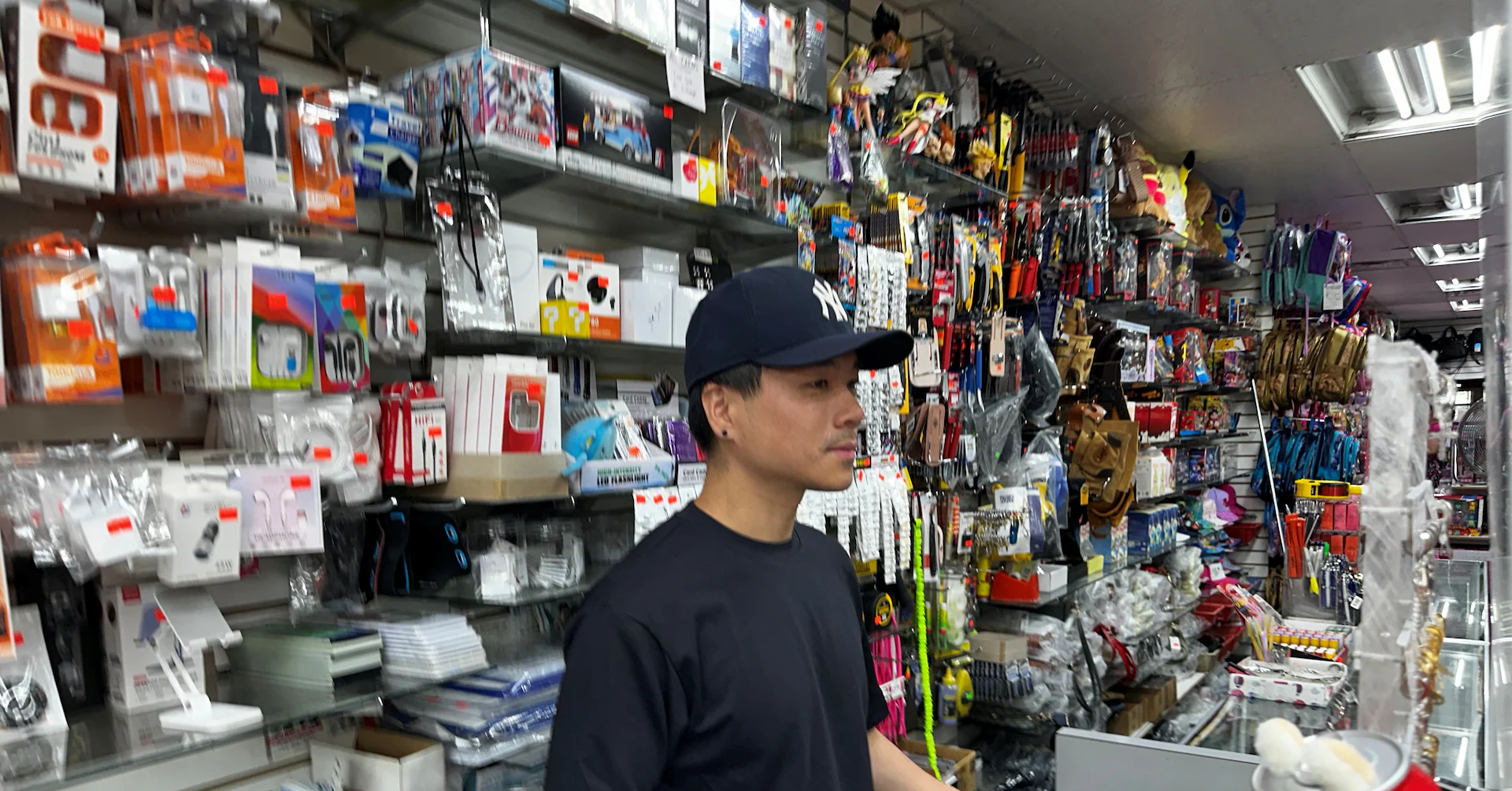Copyright Reuters

NEW YORK/NEWARK Nov 12 (Reuters) - In Newark's heavily Latino Ironbound district, Rosa Ludena works the register of the electronics shop she's owned since 2003. A wall of phone cases appears on display behind her, but few shoppers are around to buy them. Traffic has slowed, and some of her customers have told her they fear leaving the house due to a spate of high-profile anti-immigration raidschampioned by U.S. President Donald Trump. Those actions - including a headline-grabbing raid of a fish market in January a few blocks from her store - have scared people into doing more shopping online, Ludena said. Sign up here. "In this area, it's a lot of Hispanics, and they are afraid to go out because of immigration raids," says Ludena, 51, a U.S. citizen who emigrated from Ecuador in 1999. "If sales decrease, how will I pay rent?" "A shift to online purchasing in certain communities is unsurprising given concerns over changing immigration policies and their enforcement," said Mark Mathews, chief economist at the National Retail Federation. The White House, in response to Reuters' reporting, reiterated that its immigration enforcement operations are focused on anti-crime efforts and that "making American communities safer will create an environment in which all businesses can thrive in the long term and their customers can feel safe." The administration has also previously said that non-criminals are also swept up in raids. VENDORS REPORT SHARP DECLINE AFTER RAIDS The trend is hurting business owners who lack an online presence, according to community advocates. Oliver de la Garza of Proyecto Azteca, a South Texas nonprofit that works with immigrants, said business at an Alamo, Texas, flea market slumped after an ICE raid at the market in June. Where there were once some 500 vendors, there are now around half that, he said. "These aren't big businesses with websites," de la Garza said. Reuters was not able to independently confirm the extent of the toll at the flea market. Surveys by retail consultancy Kantar found that Hispanic consumers reported visiting stores less frequently across several categories. At mass retailers, self-reported visits by Hispanic shoppers fell 14.7% year-on-year between April and June, compared with a 4.5% decline among non-Hispanic groups like White, Asian and Black shoppers. At dollar stores, visits dropped nearly 6%, while other groups reported a 3% increase. Several other consumer companies, including Constellation Brands and Coca-Cola, have noted declines with this group this year without explicitly referencing immigration policy. Kantar's shopper survey doesn't ask respondents why they shop a certain way. But parallel Kantar research into the social and economic challenges facing Hispanic families showed that Hispanics this year are reporting a decline in their sense of personal safety, with "changes in immigration policy ... heightening fear and uncertainty," Kantar said. That sentiment also applies to Hispanics who reside in the U.S. legally, said Julie Craig, Kantar's vice president of shopper insights. "There is that fear of being harassed, and there is that fear of being kind of watched and singled out," Craig said. Still, Hispanic America, which comprises 19% of the U.S. population, is vast and diverse, and available data is too limited to draw definite conclusions about shopper behaviors, Reuters found. Kantar's nationwide shopper survey polls about 36,000 people a year, around 7,000 of whom are Hispanic. Trump came close to winning Hispanic voters in 2024, long a Democratic-leaning voting bloc, but his approval rating among Hispanics stood at just 32% in late October, Reuters/Ipsos polls show. Support for his immigration policy has also weakened, falling to 42% as of late October from 50% in February. "We have seen a huge decline in traffic, which I think is telling," Schultz said on its May company earnings call, noting that the online business "has been OK" by comparison. "You can see definitively the impact of immigration policy on Shoe Palace," he said. The company's sales in its unit that includes Shoe Palace fell 5.5% in the February-April period from a year earlier. A SHIFT ONLINE Hispanics' buying power is projected to hit $2.8 trillion next year, increasing faster than any other group, according to Kantar; the percentage of Kantar survey respondents who reported shopping online reached 60% in the July-September quarter, its highest ever. David Swartz, retail analyst with Morningstar, said the COVID pandemic helped make online shopping routine. "E-commerce has been rising regardless," he said, which has benefited the companies with big online platforms. Foot traffic at Urban Eyes Vision Center in Newark, which sells glasses and eye accessories, dropped after the January fish market raid in the middle of what's usually its busy season, said co-owner Valerie Bandras, 32. "People are afraid to go outside," she said. ONLINE SHOPPING FAVORS LARGE PLAYERS The manager of the Tien Rong Gift Shop in Newark, going only by Shan, reported weeks of sluggish sales at his family's store, which sells everything from stuffed animals to imitation jewelry. "We can't compete with the Walmarts of the world on price or an online presence," he said. Reuters was unable to independently confirm the sales figures of both those private businesses. Walmart's online sales rose 26% in the May-to-July quarter from a year earlier, its strongest spring-to-summer period since the pandemic. A Walmart spokesperson said the retailer is seeing customers across all demographics increasingly choose pickup and delivery. Reporting by Siddharth Cavale and Nicholas P. Brown in New York; Additional reporting by Arriana McLymore in New York and Juveria Tabassum in Bengaluru; Editing by Lisa Jucca, David Gaffen and Aurora Ellis Our Standards: The Thomson Reuters Trust Principles., opens new tab Nicholas P. Brown covers retail and consumer issues for Reuters. He was formerly the news agency’s San Juan bureau chief, leading coverage of Puerto Rico’s economic and humanitarian crises, as well as its award-winning on-the-ground coverage of Hurricane Maria. Most recently, Nick was part of the team that reported Slavery’s Descendants, a seven-part series on the economic legacy of American slavery. The series won an Online News Association award; a National Association of Black Journalists award; a pair of National Headliner awards; and was a finalist in three Deadline Club awards. Since joining Reuters in 2011, Nick has written about everything from bankruptcy law to the rise of white nationalism, deploying to the occasional natural disaster (including Hurricanes Harvey in Texas and Dorian in the Bahamas). He also covered Super Bowl LIV in Miami, and enjoyed it immensely. Contact:



